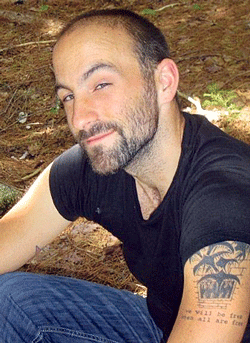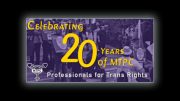By: Jason Lydon*/TRT Columnist–
Despite a multi-faith, multi-racial, cross-community effort, the fight to stop the three-strikes bill in the Massachusetts legislature failed. In November, both the House and Senate passed a version of the three-strikes bill; the Senate unanimously and the House 142-12, with all House members of the Black and Latino Legislative Caucus in opposition. The bill has been in committee since November, with three members from the House and three members from the Senate in conversation about their differences over the bill. The bill itself seemed to sneak up on community activists, faith leaders and anti-prison organizers, though the Melissa Bill, from which this legislation stems, has been around since 2000. The joint committee sent a final bill to the House and Senate, both of whom passed the final bill on July 18th and 19th, respectively. At this time, the Governor has amended the bill, but even with this amendment, the bill will still cause great harm to communities of color, and there is no substantial changes to the impact of mandatory minimum sentences that could help alleviate mass incarceration.
Black & Latino Legislative Caucus and Rep. Cheryl Coakley-Rivera
Of particular note to The Rainbow Times’ readers may be the actions of the seven openly gay/lesbian legislators. I had the great pleasure of a phone conversation with Rep. Cheryl Coakley-Rivera of Springfield. Coakley-Rivera is a member of the Black and Latino Legislative Caucus and an out lesbian. In our conversation about the bill, the representative was very clear that, “the bottom line is it was a bad bill. It was an emotional bill. You can’t pass legislation on emotion.” Even while being sympathetic to her colleagues’ votes in favor of the bill, she explained to me that this bill relies on, and will perpetuate, “racial profiling … You can’t look at anything in the criminal justice system without it.” The three-strikes bill continues the movement to take away discretion from judges and force mandatory minimum sentences. While the bill includes some very minor changes to the weights and sentences related to a number of drug distribution offenses, it is by no means the repeal of mandatory minimums we need. Coakley-Rivera explained that the Black and Latino Legislative Caucus fought hard to get a full repeal of mandatory minimum sentences for drug offenses, “because we have lost a whole generation, a generation of black and Latino men.”
Six White openly gay voted for the bill, one Latino against it
I am deeply troubled by the votes of the other six, all white, openly gay/lesbian members of the legislature. Reps. Carl Sciortino, Kate Hogan, Sarah Peake, Liz Malia and Denise Andrews, as well as Sen. Stan Rosenberg all voted in favor of the bill. Even though the Black and Latino Caucus hosted numerous community forums, even though the New England Area Conference of the NAACP released a researched position paper opposing the bill, even though the black religious leadership had rallies outside the statehouse trying to stop the bill, all of these legislators decided to vote in favor of this backward moving bill. Sciortino’s office sent me his statement regarding his vote. In his three sentence statement he explains that he was conflicted about his vote, but voted in favor of the bill because the three strikes would only target the most violent offenses and, he stated, “the concerns were outweighed by my support for the provisions of the bill that reduce drug-related mandatory minimum sentences and school zone penalties, which will lead to fewer people being incarcerated for longer periods of time.” Unfortunately Sciortino is basing his assessment of “fewer” on magical numbers, as zero research was done to show how this bill in its entirety would impact the expansion of our prison system in Massachusetts. At the time of this writing, none of the other white gay/lesbian legislators were able to return my calls for comment.
White for white
My concern is not simply that this piece of racist legislation got passed. My concern is how we talk openly and honestly about the needs of the GLBTQ communities. We are not any singular monolithic group of people and we have different needs. The reality is that the white GLBT political establishment looks out for the needs of white GLBT people alone. Consistently the white GLBT political groups turn to the criminalization of people as a way to solve problems and to “protect the community.” It seems to me that the protection is not geared for those who identify as GLBTQ and also as people of color, as poor, as homeless, as incarcerated, as criminalized.
Will Gov. Patrick stop the bill?
The racialized division of the voting on three-strikes is but another illustration of the work that is needed to be done and the education that is required to understand how the criminal punishment system destroys the lives of so many. I am disappointed in those legislators who voted in favor of this three strikes bill, and I pray that Gov. Patrick will stop the bill from becoming law. Coakley-Rivera told me that just like we have lost a generation of black and Latino men to mandatory minimums as they have been enacted since 1973, the consequences of this bill will be seen in the years to come. Keep your heart open to stories, and think about what we need to do as LGBTQ people to change the script, to weave new fabrics, to openly discuss the ways racism and white privilege tear us apart.
*Rev. Jason Lydon is a Unitarian Universalist minister in Boston. He is a long time anti-prison organizer and founder of Black & Pink, an LGBTQ-focused effort working toward the abolition of the prison industrial complex. Jason is also an avid lover of famous people and blockbuster action flicks. You can reach Jason at blackandpink99@gmail.com.









Sadly Governor Deval Patrick did not have the courage to let this bill die. It is greatly disappointing. The legislature and the Governor need to be held accountable for this terrible action that sets our Commonwealth back.
Les Gosule said today, “To violent criminals and their apologists who complain that Melissa’s Law is too harsh, I say: ‘If you can’t do the time, don’t do the crime’. If you don’t want to go to prison under this law, take responsibility for your actions and refrain from committing multiple acts of violence.”
The basic difference between criminal apologists and the rest of us that you make *excuses* for crime while we demand personal *responsibility*